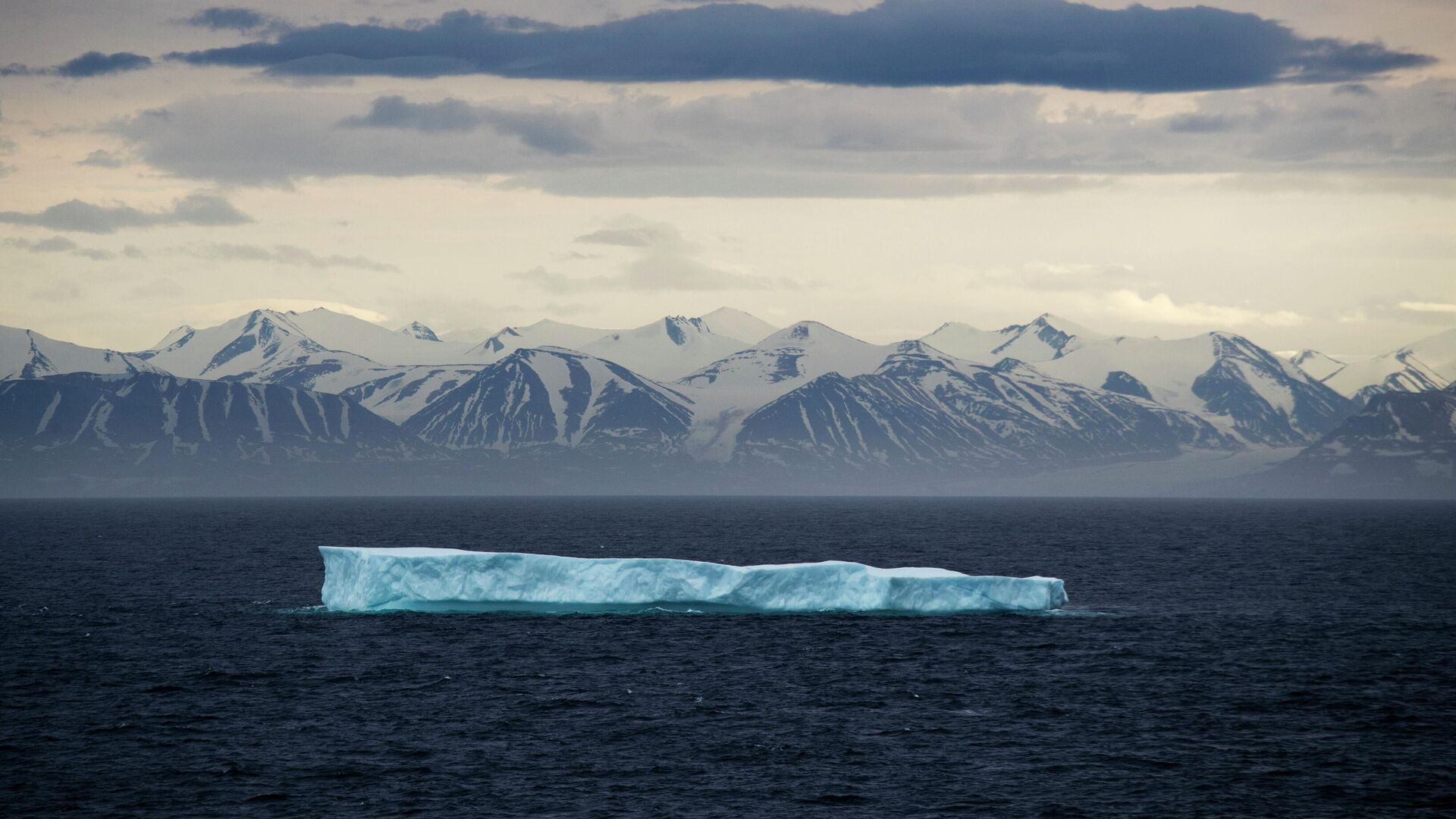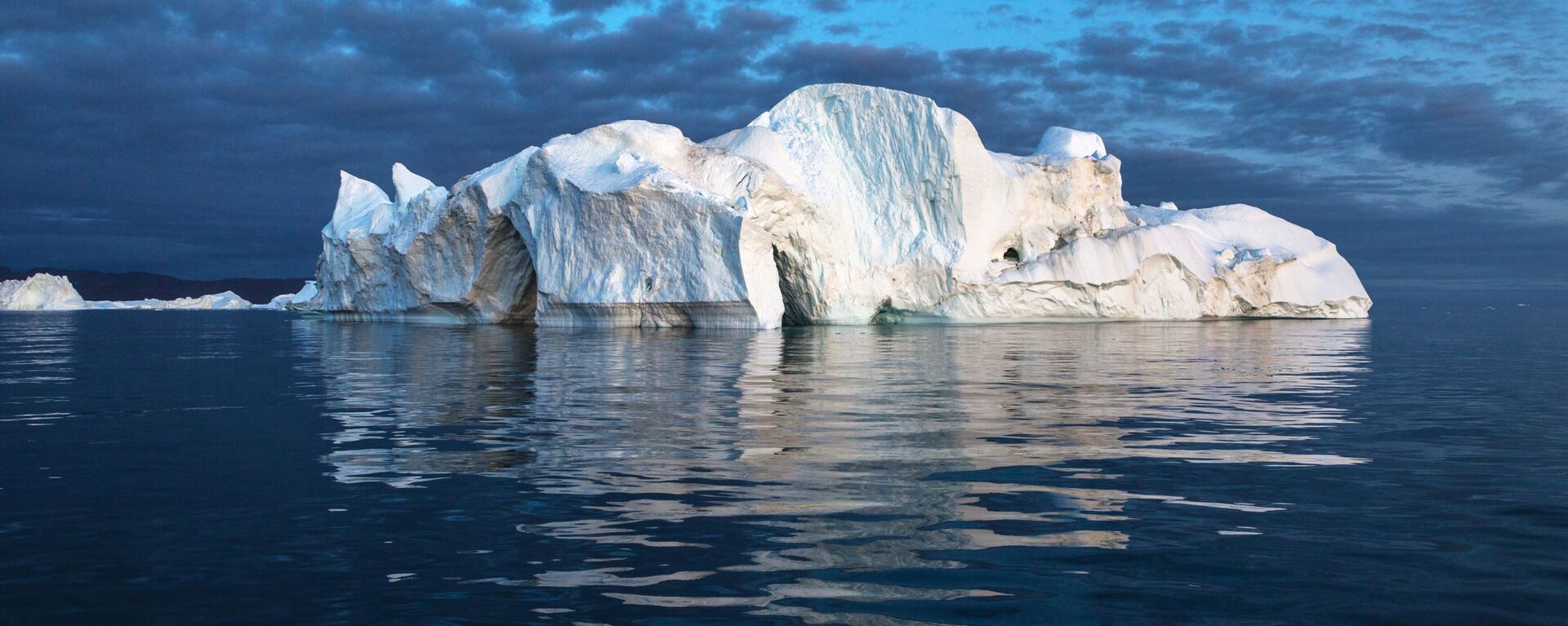Arctic 'Ghost Island' Found in 2021 Has Turned Out to Be Dirty Iceberg

© AP Photo / David Goldman
Subscribe
The 30 by 60 meters purported island was found in 2021 off the northern shore of Greenland by a research expedition that included scientists from Swiss, Danish, and Greenlandic organizations.
Formerly believed to be the world's northernmost piece of land, a "ghost island" in the Arctic has been discovered to simply be a "dirty iceberg," research by the Technical University of Denmark has revealed.
The scientists who found it last year and believed it to be land, gave it the name "Qeqertaq Avannarleq," which means "the northernmost island" in Greenlandic.
"[The island] was small and gravelly, and it was declared a contender for the title of the most northerly known land mass in the world," Kevin Hamilton, a professor of atmospheric sciences at the University of Hawaii, wrote for The Conversation. "But there was a mystery afoot in the region. Just north of Cape Morris Jesup, several other small islands had been discovered over the decades, and then disappeared."
According to Hamilton, some experts hypothesized that the dirty iceberg was a rock bank that sea ice had forced upward.
The northernmost point of Greenland, the largest island in the world, is Cape Morris Jesup, which is around 712 km from the North Pole.
The "Oodaaq" island, which was located in the polar ice cap off the cape in 1978, was the first of these tiny, rapidly disappearing islands to be found. Since then, several more of these "ghost islands" have been discovered by other expeditions.
However, a new expedition in the summer of 2022 has examined the newly found island thoroughly this time.
The researchers concluded that Qeqertaq Avannarleq is not an island at all, but a grounded iceberg covered by a layer of soil, pebbles and mud, which is probably deposited on the ice from glaciers in the area.
According to Rene Forsberg, a professor at DTU Space who was also part of the 2022 expedition, numerous of such "northernmost islands" have been discovered throughout the years, but were found to have disappeared over the years.
"Our new studies show unequivocally that all these reported 'islands' are flat icebergs. This applies to both the newly discovered 'Qeqertaq Avannarleq' and the first discovered 'Oodaaq Ø', which was found in 1978. They are typically 20-30 meters thick, with a thin surface layer of soil and pebbles," Forsberg said in a DTU release, per a translation.
The team traveled to many of the nearby tiny islands, including Qeqertaq Avannarleq, gathering GPS data and measuring ice thickness and sea depths using laser scanning techniques.
"Sea depths have never been measured in the area before because of the 2-3 meter thick semi-stationary sea ice. The new depth measurements surprisingly showed that all the reported islets were located at sea depths between 25 and 45 metres. It unequivocally confirmed that the reported small islands are flat-topped icebergs with an unusual cover of soil and pebbles, which have run aground in the area," Forsberg explained. "They can be categorized as semi-stationary ice islands, which may well have a lifespan of up to several years."
The source of the new "islands" is likely floating glacier tongues in the so-called Cape Washington area, which lies 40-50 km west of Cape Morris Jesup at the northern tip of Greenland, per the scientists.
Following the latest discoveries, the Coffee Club Island continues to have the title since Robert E. Peary made the initial discovery while traveling to the North Pole along Greenland's north shore.
This island is located at the position 83 ° 39'55” N, 30 ° 37'45”, W.

23 January 2022, 14:00 GMT
